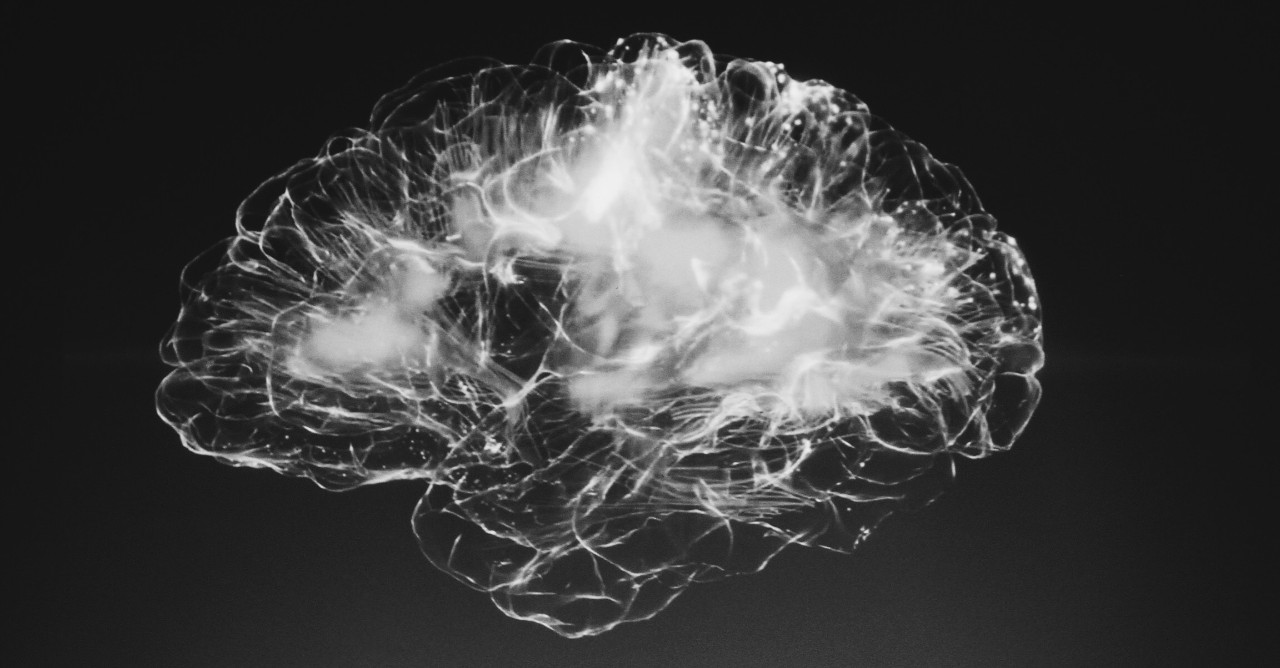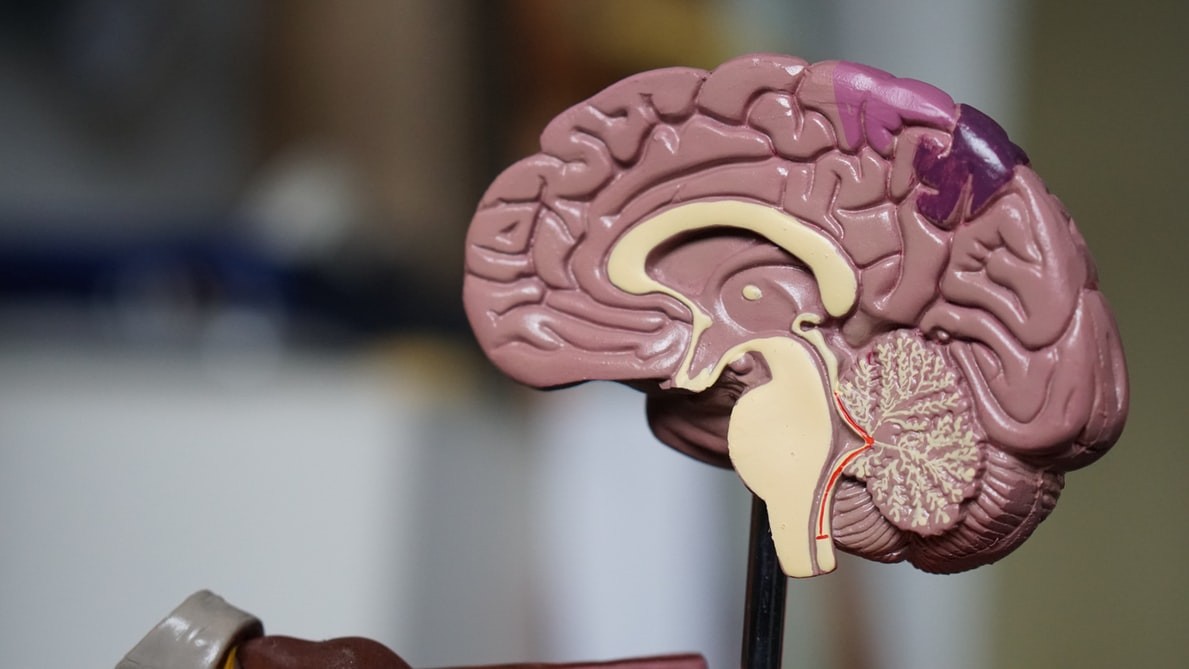
A potential new treatment for mental health disorders
Brain stimulation can help patients become ‘unstuck’ from negative thoughts, research finds
A University of Cincinnati researcher is examining how targeted electrical stimulation can help improve specific brain functions as a treatment for mental health disorders like anxiety or depression.
Ishita Basu, PhD, research assistant professor of neurosurgery at UC’s College of Medicine, said mental health issues are often described by their symptoms, but there are typically underlying functional deficits in the brain as well that can be targeted.
This includes functions like cognitive control, which Basu explains “is an umbrella term that describes how we make decisions, how we resolve conflict or even how we remember things. So it’s a basic cognitive process that happens, and that’s often compromised in a lot of psychiatric disorders.”
Before coming to UC, Basu was a research instructor at Massachusetts General Hospital and co-author on a study published in November 2021 in the journal Nature Biomedical Engineering showing that model-based, targeted electrical brain stimulation can help improve patients’ cognitive control. She will be expanding and furthering the research at UC.
Pilot study

Ishita Basu, PhD. Photo/University of Cincinnati.
The pilot human study conducted by investigators at the Massachusetts General Hospital and the University of Minnesota Medical School looked at 21 patients undergoing brain surgery for epilepsy in a procedure that places hundreds of electrodes throughout the brain to localize seizures. These patients were chosen because the tiny electrodes can also provide data on brain signals and stimulation that is not normally possible.
Basu and her colleagues identified for the first time that when the area of the brain responsible for cognitive control was stimulated with small amounts of electrical energy, patients’ cognitive control functions were improved.
In practice, Basu said impaired cognitive control can look like a patient with depression who becomes stuck in a negative thought pattern. The electrical stimulation helps the patient become “unstuck” from the negative thoughts, she said.
“They are not flexible enough to get past that roadblock in those scenarios,” Basu said of patients. “If we have some stimulation that can nudge them to overcome that, that might actually lead them towards a more healthy behavior.”
I’m seeing if we can actually design a more data-driven approach to design these therapeutics.
Ishita Basu, PhD
Some patients in the study reported their anxiety got better following the stimulation because they could more easily shift their thoughts from whatever was causing them stress and instead focus on the task at hand.
Basu said the research team designed a system that delivered the stimulation when required rather than administering it continuously. The study found that their system was twice as effective than stimulating at random intervals.
“In general these mental illnesses are not present all the time,” she said. “So it’s important to actually figure out when to stimulate when something is not right.”
The research team had funding from the Defense Advanced Research Projects Agency due to the study’s relevance for veterans suffering from PTSD, anxiety and depression, but Basu said the results could be applied to anyone with mental health issues.

Basu is researching how brain stimulation with varying levels of invasiveness can affect patients' cognitive control and mental health. Photo courtesy of Unsplash.
Building a program
With her past experiences, Basu is now working to establish the same line of research into brain stimulation as a treatment at UC. She said this will include research into how less invasive brain stimulation can affect cognitive control and help treat mental health issues without requiring brain surgery or implanting electrodes.
Currently, Basu is actively recruiting epilepsy patients for a follow-up study to record brain signaling with the hope to create a predictive model of how stimulation can change the signals in the brain.
“I’m seeing if we can actually design a more data-driven approach to design these therapeutics,” Basu said.
In a parallel line of research, Basu plans to study scalp electroencephalograms, or EEGs, from patients with mood and anxiety disorders and healthy control patients to expand the research from epilepsy patients. This population group will help Basu design algorithms and models of how to administer noninvasive stimulation effectively.
Basu said the more invasive treatment can be thought of like a cardiac pacemaker, where a physician programs the surgical implants and patients receive stimulation at any time and anywhere they are when needed. Noninvasive routes would be more hands-on, where the patient receives the stimulation at a doctor’s office with the hope that it will treat symptoms for a period of time between sessions or until no longer needed.
Featured photo at top courtesy of Unsplash.
Impact Lives Here
The University of Cincinnati is leading public urban universities into a new era of innovation and impact. Our faculty, staff and students are saving lives, changing outcomes and bending the future in our city's direction. Next Lives Here.
Related Stories
Ohio could soon make breast cancer screenings more affordable
May 9, 2025
The University of Cincinnati Cancer Center's Ann Brown was featured in Local 12 and Cincinnati Enquirer reports on a bill introduced by Rep. Jean Schmidt in the Ohio legislature that seeks to eliminate out of pocket medical expenses such as copays and deductibles associated with supplemental breast cancer screenings.
Preparing students for artificial intelligence in education
May 8, 2025
Laurah Turner, PhD, associate dean for artificial intelligence and educational informatics at the University of Cincinnati's College of Medicine, recently joined the For The Love of EdTech podcast to discuss the usage of personalized learning and AI coaches to enhance educational experiences.
UC lab-on-a-chip devices take public health into home
May 8, 2025
University of Cincinnati engineers created a new device to help doctors diagnose depression and anxiety. The “lab-on-a-chip” device measures the stress hormone cortisol from a patient’s saliva. Knowing if a patient has elevated stress hormones can provide useful diagnostic information even if patients do not report feelings of anxiety, stress or depression in a standard mental health questionnaire.
